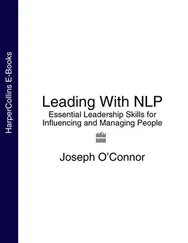John Gray - Children Are from Heaven - Positive Parenting Skills for Raising Cooperative, Confident, and Compassionate Children
Здесь есть возможность читать онлайн «John Gray - Children Are from Heaven - Positive Parenting Skills for Raising Cooperative, Confident, and Compassionate Children» весь текст электронной книги совершенно бесплатно (целиком полную версию без сокращений). В некоторых случаях можно слушать аудио, скачать через торрент в формате fb2 и присутствует краткое содержание. Год выпуска: 1999, ISBN: 1999, Издательство: HarperCollins e-books, Жанр: psy_childs, sci_pedagogy, Психология, на английском языке. Описание произведения, (предисловие) а так же отзывы посетителей доступны на портале библиотеки ЛибКат.
- Название:Children Are from Heaven: Positive Parenting Skills for Raising Cooperative, Confident, and Compassionate Children
- Автор:
- Издательство:HarperCollins e-books
- Жанр:
- Год:1999
- ISBN:978-0-06-133886-1
- Рейтинг книги:4 / 5. Голосов: 1
-
Избранное:Добавить в избранное
- Отзывы:
-
Ваша оценка:
- 80
- 1
- 2
- 3
- 4
- 5
Children Are from Heaven: Positive Parenting Skills for Raising Cooperative, Confident, and Compassionate Children: краткое содержание, описание и аннотация
Предлагаем к чтению аннотацию, описание, краткое содержание или предисловие (зависит от того, что написал сам автор книги «Children Are from Heaven: Positive Parenting Skills for Raising Cooperative, Confident, and Compassionate Children»). Если вы не нашли необходимую информацию о книге — напишите в комментариях, мы постараемся отыскать её.
Children Are from Heaven: Positive Parenting Skills for Raising Cooperative, Confident, and Compassionate Children — читать онлайн бесплатно полную книгу (весь текст) целиком
Ниже представлен текст книги, разбитый по страницам. Система сохранения места последней прочитанной страницы, позволяет с удобством читать онлайн бесплатно книгу «Children Are from Heaven: Positive Parenting Skills for Raising Cooperative, Confident, and Compassionate Children», без необходимости каждый раз заново искать на чём Вы остановились. Поставьте закладку, и сможете в любой момент перейти на страницу, на которой закончили чтение.
Интервал:
Закладка:
THE VIRTUES OF GRATITUDE
Parents are too quick to teach the virtues of gratitude instead of giving their children permission to want more. “Be grateful for what you have” is too quick a reply to a child’s desire for more. Many adults don’t give themselves permission to want more in life because they are afraid of appearing ungrateful for what they have.
In the past, sacrifice has been a part of spirituality. To be good, holy, or spiritual meant to sacrifice in the name of God. Sacrifice was a valid means to feel one’s connection with God because it was a way people would begin to feel.
To give up something for God forced one to feel more deeply. Today, we don’t need to sacrifice to feel. We just need permission to want more and feelings will come up in abundance.
In the past, it was appropriate to sacrifice
for God, but today our challenge is to live
for God.
Our challenge is to create a life of abundance. We have so many resources at our fingertips today that were never available before. Your children can make their dreams come true. They can enjoy both inner and outer success. The basis of this success is permission to want more. Unless they have permission to want more, they will stop dreaming, and without a dream nothing will happen except what has happened before.
The secret of success, both inner and outer, is to appreciate what you have and to want more. A heart full of gratitude and love for what you have and a strong passion to achieve and have more is the secret recipe for our children’s success in life. When children are able to manage the negative feelings that come up from not always getting what they want, then they will consistently come back to appreciating the love and support that they are given. With gratitude for their parents’ love and support, children have the foundation to feel the desires of their own true self and not the misdirected desire that others may possess.
PERMISSION TO NEGOTIATE
When children are given permission to want more, it occasionally means more work for the parent. In return, children learn how to negotiate for more in life. Although negotiation takes more time, sometimes I am amazed by my children’s power to motivate me to do things. I am proud of their strength and determination and resistance to blind submission of will.
When given the freedom to ask for what she wants, my daughter’s inner power to get what she wants has a chance to blossom. She will not always take no for an answer. She is quick to negotiate and will often motivate me to give her what she wants. It is okay if she convinces you to change your position. This does not mean caving in to avoid the inevitable tantrum. There is a big difference between being manipulated by a whiny child and being motivated by a brilliant negotiator.
Parents must maintain control throughout every negotiation by clearly setting limits on how long it can go on.
There is big difference between being
manipulated by a whiny child and being
motivated by a brilliant negotiator.
So many adults don’t know how to ask for what they want, because they didn’t have lots of practice as children.
When they finally do ask for what they want, they still don’t know how to negotiate. If they get a no, they either back off or feel resentful. So many adult problems would disappear if people had learned how to negotiate back and forth to get what they want. We have so many lawyers in this world simply because people are so inept in working out and negotiating their differences.
Children who have grown up negotiating to get more don’t back off, nor do they become resentful. They know that no only means no if they don’t come back with another good reason to comply with their request. They also know that no today doesn’t mean no tomorrow. Negotiation requires a creativity and persistence that comes automatically when children are given permission to want more.
Children need permission to ask for more; otherwise, they will never know how much they can get. Even as adults we still have difficulty determining what and how much we can ask for so that we don’t offend or appear too demanding or ungrateful. If adults have difficulty, then clearly we should not expect our children to know.
Children need permission to ask for more;
otherwise they will never know how much
they can get.
When giving a child permission to ask for more, parents must understand and accept that sometimes a child will want way too much or seem very selfish. At these times, instead of judging or disapproving, parents need to give acceptance and understanding. A child cannot be expected always to know what is appropriate to ask for. It is a process of trial and error.
LEARNING TO SAY NO
Just because children have permission to ask for more doesn’t mean that you will always acquiesce. Just as they learn to ask for more, a parent must practice being comfortable saying no.
When parents can’t say no, children very quickly will be unreasonable in their requests. They will keep wanting more and more until they reach the limit.
If parents are unable to set reasonable limits, children will ask for what is unreasonable. A child will push and demand for it until he or she gets a clear limit. When that limit is reached, the child will often need a time out to deal with the strong feelings of disappointment, rage, anger, sadness, and fear. The more children get what they want, the more upset they get when they finally don’t get what they want.
If parents are unable to set reasonable limits,
children will ask for what is unreasonable.
When children negotiate for what they want, parents must set clear limits for how long the negotiation lasts. A parent only has so much time and inclination to continue negotiating.
When you feel that you have heard enough and you are not willing to change, then it is time to say, “I understand you are disappointed, but now this negotiation is over.”
If the child continues, the parent should just repeat this phrase and give a command to stop. The parent could say, “This negotiation is over. I want you to stop asking me.”
If the child continues, he or she is out of control and needs to take a time out. After this process occurs a few times, the child will be very respectful of your request to end negotiations. Remember, when a parent shifts to command mode and repeats a command, no must mean no.
When a parent shifts to command mode and
repeats a command, no must mean no.
Most of the time, to end a negotiation, particularly with a young child, parents can use redirection. A mother might say, “I understand you are disappointed. I wish I could wave a beautiful magic wand and give you what you want, but I can’t. Let’s instead do this . . .”
There are two different situations when a parent is required to say no to a child. In the first situation, your child resists your request. For example, you want her to get ready to leave, but she wants to play more. In this example, you must clearly and effectively be able to say no to more playing and repeat your request. In the second situation, you are required to say no to her direct request. She wants you to play with her, but you have other plans. In both cases, the best way to answer is with confidence and brevity. Don’t give a lot of reasons to justify saying no — just say no. If challenged, simply repeat the same response more firmly. These are some simple examples:
TEN WAYS TO SAY NO
1.No, right now I am busy.
2.No, I have other plans.
3.No, but maybe some other time.
Читать дальшеИнтервал:
Закладка:
Похожие книги на «Children Are from Heaven: Positive Parenting Skills for Raising Cooperative, Confident, and Compassionate Children»
Представляем Вашему вниманию похожие книги на «Children Are from Heaven: Positive Parenting Skills for Raising Cooperative, Confident, and Compassionate Children» списком для выбора. Мы отобрали схожую по названию и смыслу литературу в надежде предоставить читателям больше вариантов отыскать новые, интересные, ещё непрочитанные произведения.
Обсуждение, отзывы о книге «Children Are from Heaven: Positive Parenting Skills for Raising Cooperative, Confident, and Compassionate Children» и просто собственные мнения читателей. Оставьте ваши комментарии, напишите, что Вы думаете о произведении, его смысле или главных героях. Укажите что конкретно понравилось, а что нет, и почему Вы так считаете.












